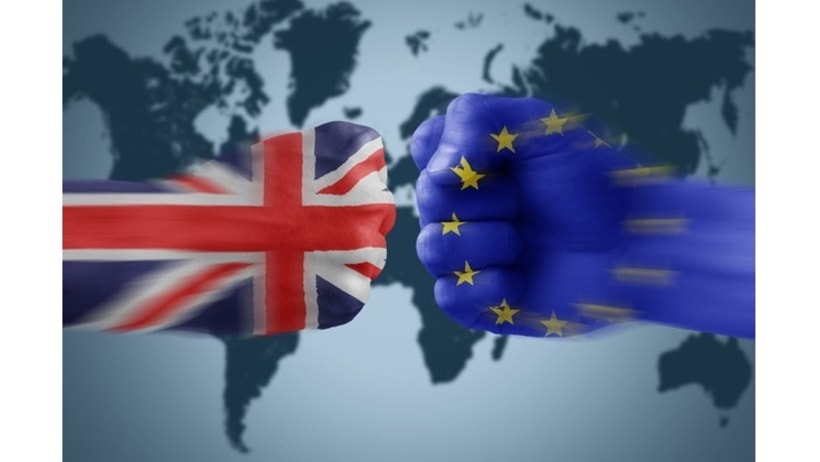Oasis Songs: Musings from Rav D
June 24, 2016 / 18 Sivvan, 5776
In 1941, on a small island 25 miles off the Italian coastline, two political prisoners would pen a secret manifesto that would come to define the next 75 years of European history. Altiero Spinelli and Ernesto Rossi looked in horror at the devastation of World War II, in which authoritarian regimes threatened the entire continent and beyond. These gentlemen believed in the rights of the individual, which are always curtailed by totalitarian governments. Their analysis of European history was that while the nation state had been an important construct, it had increasingly become the source for Europe’s incessant and increasingly destructive wars. Indeed, as they saw things, nations as constituted, almost inevitably will come to war against one another because their only goal is to strengthen themselves, and thus see other nations as threatening.

Their doctrine, the Ventotene Manifesto, argued that the way out of this destructive morass was to federalize Europe. In this way, individual nations will to power would be curtailed, and a more just and unified Europe would arise. This in turn would help maximize the rights and protections afforded to individuals and ensure their economic betterment.
Much of Spinelli and Rossi’s argument springs from socialist thinking, and arguably the modern Europe of the last half century had placed social welfare of its citizens front and center. Freedom of movement across state lines, the right to work and travel anywhere and nationalized healthcare in the EU are but a few examples of how this manifesto reshaped a war-ravaged continent.
Regardless of whether one views these goals favorably, England’s vote yesterday to leave the European Union sends a strong signal that the work of a unified and federalized Europe is at jeopardy. So does Greece’s economic woes. Will other nations now also be tempted to exit the Union? Will Scotland or Ireland wish to secede from the United Kingdom? No one can predict the outcome of the historic vote of June 23rd. Yet the fallout promises to be far-reaching.
Nonetheless, as Americans and Jews, there is much we can learn from this political upheaval. A couple of months ago, I gave a sermon about how Judaism views trust as an essential economic commodity. Our sages and tradition as a whole have not scorned the acquisition of wealth, unlike some other religious traditions. Indeed, wealth is normatively viewed as one blessing among others. Yet the Talmud also understood that limitations, regulations and fairness had to be part of all our transactions. Judaism even dictates what sort of leverage is permissible in our business dealings, and what types of leverage are immoral. The Bible itself also had some reset buttons so that market efficiency and opportunity for all would be maintained. The Jubilee year, where land use and distribution returned to the original tribes, is one example of how the Torah attempted to ensure balance while still permitting capitalism and ambition an active role.
It seems self-evident to me that in both the United States and Europe and many other countries beside, average people have lost trust in the system and in their country. This in turn leads to more radical political candidates, or highly disruptive shifts in public policy such as yesterday’s Brexit vote. Strangely, the United States placement on an annual corruption scale have not changed in twenty years. In 1995, the USA ranked number 16 with a score fo 76 out of a 100 (a perfect score). That is exactly the same outcome it achieved in 2015. England meanwhile, actually improved, moving from 14th place to 10th, although its numerical score was virtually identical. (www.transparency.org)
Frankly, I don’t know entirely what to make of the discrepancy between how people feel about their condition and what the numbers show about how fair the system is. Where I do feel comfortable positing is that this is the first time in human history in which the world has had a relatively unified and interconnected global economy. Simultaneously, large numbers of people are finding it increasingly difficult to carve out a place for themselves in this global system. The value of labor, relative to the value of capital, has diminished.
It is a dangerous mix when the perception of trust and transparency diminish, people feel themselves worse off and long-held social contracts begin to unravel. It is moments like these when people either opt out of the system entirely or opt for demagoguery and totalitarianism. If Jews are the canary in the coal mine of history, we ought to be concerned.
Finally, let me venture on to a narrow tree branch, and venture that our Portland Jewish community faces some of these same stressors. More Jews have opted out at the same time that our lack of communal transparency has increased. In a period where we have no Jewish press to hold our institutions, leaders and Federation to account, decisions will be made and agreements abdicated. Perhaps it is time that our community seriously reconsiders its need for a weekly newspaper?
Blessings,



